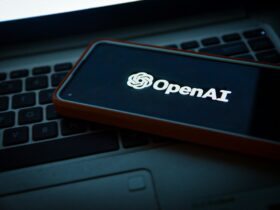A Surprising Price Tag for a Social Media Giant
TikTok’s U.S. business has been slapped with a $14 billion valuation, stunning investors who see the number as far too low for one of the most influential social media platforms in the world. The figure, floated by U.S. Vice President JD Vance, puts TikTok’s American arm on par with mature industries like energy or packaged foods—far removed from the fast-growth image of digital platforms.
The valuation stands in stark contrast to earlier projections of $40 billion or more, underscoring the political, regulatory, and strategic complexities surrounding the forced sale of TikTok’s U.S. operations. President Donald Trump’s administration is pushing ahead with a deal that would see American investors acquire the unit from its Chinese parent company, ByteDance Ltd.
How the Deal Came About
The push for TikTok’s partial divestment is rooted in national security concerns over its Chinese ownership. U.S. officials have long expressed worries that the app could share sensitive user data with Beijing, though TikTok has repeatedly denied such claims.
Under the Trump-backed plan, U.S. buyers such as Oracle Corp. and Silver Lake Management LLC are expected to take significant stakes, while ByteDance’s ownership would be capped below 20%. The deal must be finalized within 120 days, creating a tight window for negotiations, regulatory approvals, and operational restructuring.
Investors Cry Foul Over Valuation
Many analysts and investors argue that the $14 billion estimate dramatically undervalues TikTok’s U.S. presence.
- Ashwin Binwani, founder of Alpha Binwani Capital, called it “the most undervalued tech acquisition of the decade.”
- By his calculations, the price represents just one-third of TikTok’s true worth based on its revenue, user base, and engagement levels.
- With 170 million active American users generating over $10 billion in annual revenue, TikTok U.S. boasts a price-to-sales ratio of only 1.4x at the proposed valuation—comparable to ExxonMobil and General Mills, companies in industries with far slower growth.
For context, Meta Platforms (Instagram, Facebook) trades at around 10x sales, while Alphabet (YouTube) is at 8x sales.
Industry experts argue that the proposed price tag feels less like a fair deal and more like a politically driven discount.
| Platform | Active U.S. Users | Estimated Annual Revenue | Proposed / Market Valuation | Price-to-Sales Ratio |
|---|---|---|---|---|
| TikTok U.S. | 170 million | $10B+ | $14B (proposed) | 1.4x |
| Instagram (Meta) | 150 million+ | $30B+ | ~$300B (part of Meta) | 10x |
| YouTube (Alphabet) | 200 million+ | $28B+ | ~$250B (implied) | 8x |
| Snapchat | 110 million | $4.6B | ~$24B (market cap) | 5.2x |
TikTok’s Dominance in the Social Media Landscape
TikTok has become a cultural and economic force in the U.S. and beyond. Its short-form video format has transformed how people consume content and spurred rivals to create copycat features like Instagram Reels and YouTube Shorts.
With average daily usage outpacing other social platforms, TikTok has become not only a hub for entertainment but also a powerful advertising engine. Brands and creators rely on it for marketing reach, making it one of the most valuable advertising platforms globally.
Despite this, valuing TikTok remains tricky, largely due to its proprietary algorithm, which is considered the crown jewel of the company. Analysts note that replicating such a system would cost billions in R&D, further bolstering arguments that the U.S. arm alone should be worth significantly more than $14 billion.
Political Pressure and Geopolitical Tensions
The deal is not just financial—it’s deeply political. President Trump has publicly stated that Chinese President Xi Jinping has given his blessing to the U.S. sale, but Beijing has not officially confirmed this stance.
Some observers argue that the deal effectively places ByteDance under duress. As Alvin Foo, a venture partner at Zero2Launch, put it:
“It’s like you’re putting a gun to ByteDance and saying, ‘sell or you stop.’”
This highlights the uncertainty of whether China will allow the sale to proceed, especially given its strategic push to maintain control over advanced algorithms and consumer-facing technologies.
Who Will Run TikTok U.S.?
Another lingering question is who will manage TikTok’s American operations after the sale. While Oracle and Silver Lake are financially strong, neither is a consumer-facing tech company with experience in running a global social platform.
This raises concerns about whether TikTok’s unique culture and growth trajectory could be disrupted post-acquisition. Some analysts warn that the absence of a seasoned social media operator could slow innovation, impacting both users and advertisers.
The Bigger Risk: An AI and Data Domino Effect
TikTok’s U.S. saga reflects broader geopolitical battles over AI, algorithms, and data control. Social media platforms today are not just entertainment tools—they are central to AI training, digital advertising, and even political influence.
If the deal proceeds at the proposed valuation, it could set a precedent for how governments intervene in cross-border tech ownership, potentially leading to more forced divestitures in other industries, from semiconductors to cloud computing.
For investors, this adds a new layer of geopolitical risk when valuing tech companies operating in multiple jurisdictions.
Why ByteDance May Push Back
While U.S. buyers might welcome the low price, ByteDance and its existing investors could find it unacceptable. Valuing TikTok’s U.S. operations so far below its global peers undermines not only its current worth but also its future growth potential.
Industry insiders suggest ByteDance may seek to negotiate higher valuations or delay the sale until geopolitical tensions ease. However, with a strict 120-day deadline in place, options may be limited.
Final Outlook: A Defining Moment for Global Tech
The proposed $14 billion valuation of TikTok U.S. has sent shockwaves through both Wall Street and Silicon Valley. While American investors may see it as a bargain, many analysts consider it a politically influenced undervaluation that fails to reflect TikTok’s dominance, revenue generation, and future growth prospects.
Whether or not the deal goes through, this moment will likely be remembered as a watershed in global tech geopolitics—one where valuation, national security, and international relations collided.
For investors, the lesson is clear: in today’s climate, politics can shape markets just as much as fundamentals.







Leave a Reply